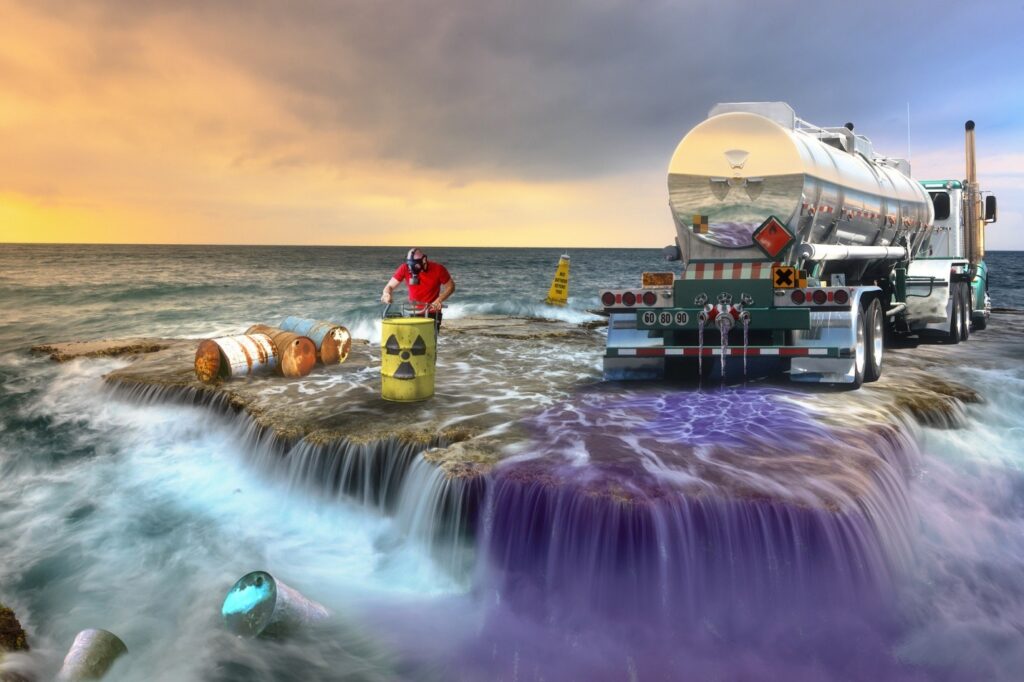How Reclaim Waste can Save You Time, Stress, and Money.
How Reclaim Waste can Save You Time, Stress, and Money.
Blog Article
Reclaim Waste Fundamentals Explained
Table of ContentsReclaim Waste Things To Know Before You Buy4 Easy Facts About Reclaim Waste ExplainedNot known Factual Statements About Reclaim Waste Reclaim Waste for DummiesReclaim Waste Can Be Fun For Anyone
Residential sewage waste refers to the waste and items from a domestic septic storage tank. The proper monitoring and disposal of residential sewage waste need fluid waste to be transferred to a sewer therapy plant where the appropriate techniques and equipment are used to detoxify and dispose of waste.
Commercial waste frequently consists of possible risks, such as flammable materials or a blend of fluid and solid waste items, and requires a much more innovative and comprehensive disposal procedure. The disposal of business waste commonly entails the filtration of waste prior to transport to guarantee risk-free and appropriate disposal. Industrial waste is developed from results and runoff of commercial procedures and manufacturing.
This kind of waste can not use the same sewage management transportation or processes as septic or industrial fluids. The hazardous waste monitoring process calls for the examination and screening of liquid waste before it goes through the disposal process (liquid waste removal). Drainage waste is the fluid waste that originates from drainage and excess stormwater in very booming locations or cities
Runoff waste can trigger contamination and flooding if not handled properly. Find out more about sewer cleansing and waste monitoring. Making sure appropriate waste administration can avoid calamities and lower ecological damage. Both individuals in domestic setups and specialists in business or manufacturing markets can gain from understanding the procedures and laws of liquid waste management.
Fascination About Reclaim Waste
Get in touch with PROS Services today to learn more about our waste monitoring and disposal services and the correct methods to look after the liquid waste you create.
(https://www.domestika.org/en/reclaimwaste1)Do you recognize what happens to your water when you draw the plug, flush the toilet or drain pipes the washing machine? No? Well, it deserves understanding. This so-called 'wastewater' is not just a crucial resource yet, after treatment, will certainly be released to our land, rivers or the sea. Made use of water from toilets, showers, bathrooms, cooking area sinks, washings and industrial procedures is recognized as wastewater.

water made use of to cool machinery or tidy plant and equipment). Stormwater, a type of wastewater, is runoff that streams from farming and city areas such as roof coverings, parks, gardens, roads, paths and seamless gutters into stormwater drains, after rainfall. Stormwater flows unattended straight to regional creeks or rivers, at some point getting to the sea.
The 6-Minute Rule for Reclaim Waste
In Queensland, many wastewater is treated at sewage therapy plants. Wastewater is transferred from residential or commercial sites via a system of sewers and pump stations, called sewerage reticulation, to a sewer therapy plant. Regional governments build, maintain and run most sewer therapy plants. Operators are licensed under the Environmental Management Act 1994 to discharge treated wastewater at an acceptable environmental standard into waterways.
The Division of Natural Resources encourages city governments concerning handling, operating and preserving sewerage systems and therapy plants. In unsewered locations, regional governments might call for homeowners to install specific or house sewer treatment systems to deal with residential wastewater from bathrooms, kitchen areas, washrooms and laundries. The Department of Natural Resources authorizes using home systems when they are proven to be reliable.
In some new subdivisions, treatment of some stormwater to eliminate clutter, sand and gravel has actually begun utilizing gross pollutant catches. Wastewater treatment you could look here occurs in four phases: Eliminates strong matter.
Wastewater after that streams right into large containers where solids work out and are removed as sludge. Grease and residue are skimmed from the surface. Makes use of small living microorganisms knows as micro-organisms to damage down and eliminate continuing to be dissolved wastes and great particles. Micro-organisms and wastes are incorporated in the sludge. Eliminates nitrogen and phosphorus nutrients that might cause algal blooms in our rivers and intimidate water life.
The Only Guide for Reclaim Waste
Nutrient elimination is not available at all sewage therapy plants due to the fact that it requires costly specialist tools. It is coming to be more typical in Queensland. Clear fluid effluent created after treatment may still have disease-causing micro-organisms. If this effluent is launched right into rivers such as rivers or the sea, the micro-organisms will ultimately die out.

This typically implies wastewater has actually to be treated or contaminants eliminated prior to it can be discharged to rivers. A lot of wastewater moves right into the sewerage system. Under the Act, local federal governments provide approvals and permits for ecologically appropriate activities (Periods) entailing wastewater launches that may have a regional impact. The department provides approvals and permits to Ages including wastewater releases that could have a regional or statewide influence.
Everything about Reclaim Waste
Otherwise, examples are taken for lab evaluation. Frequently several examinations are needed to establish the levels of each of the different contaminants such as oils, heavy steels and chemicals in water. Monitoring offers accurate details concerning water quality and can confirm that licence conditions are being satisfied. The details acquired through tracking gives the basis for making water quality decisions.
Report this page